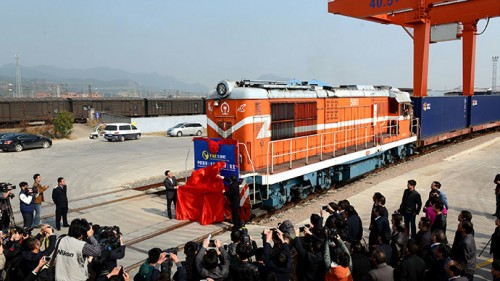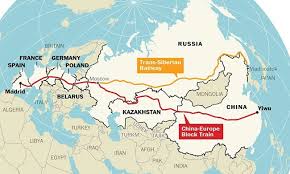
Madrid was the final destination for a train which has set the record for the longest train journey in history: 13,052 kms between the Chinese city of Yiwu and the Spanish capital.
The train which arrived in Madrid at 11 a.m., departed from Yiwu Nov 18 with 40 wagons, carrying 1,400 tonnes of cargo, consisting of stationary, craft products and products for the Christmas market. It will return to China filled with luxury Spanish produce such as cured ham, olive oil and wine, Xinhua reported.
The results of this first historic journey will be evaluated with the aim of opening a regular two-way rail link between China and Spain, which could commence operations in early 2015.
Two major advantages of rail travel were that the goods were transported much faster than would otherwise be possible by boat, arriving in Spain in half of the time a cargo vessel would need to cross from China to Spain, while the train produces 62 percent less carbon dioxide contamination than a lorry making the same journey by road.
The marathon journey crossed China, Kazakhstan, Russia, Belarus, Poland, Germany and France, before arriving in Spain with 30 of the wagons it had originally set out with.

The 13,052 kms between Madrid and Yiwu is a greater distance than that between the north and south pole, although the distance was not covered using the same crew, nor the same engine.
The engine was changed approximately every 800 kms, while the crew changed with each country the train traversed. Special stops were necessary at the frontier cities of Dostyk (Kazakhstan), Brest (Belarus) and Irun (Spain) in order to deal with the different railway gauges encountered along the route.
Huang Yazhong, the director of business at the Chinese embassy in Madrid said the journey showed the great importance China gave to strengthening relations with Europe, while thanking all of the authorities which had helped to make such a historic trajectory possible.
Mayor of Madrid Ana Botella said that the 13,052 kms of railway which had made the historic feat possible was like a “new silk road for the 21st century, except that now the commerce will travel in both directions.”